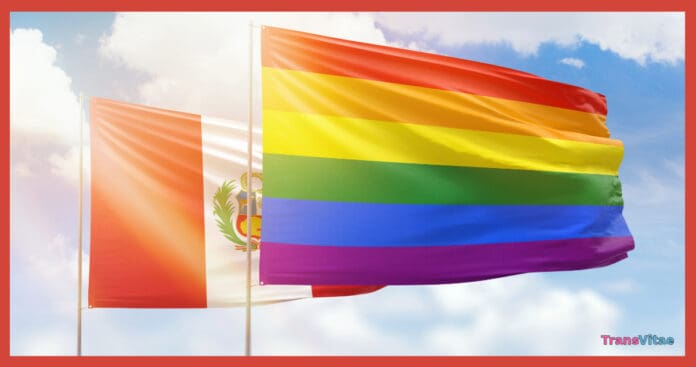In a move that has ignited widespread condemnation, the Peruvian government issued a presidential decree on May 10th classifying various transgender identities, including “transsexuality” and “gender identity disorders in children,” as mental health conditions under the country’s Essential Health Insurance Plan. This contentious classification also includes “dual-role transvestism” and “other gender identity disorders,” according to the decree that President Dina Boluarte and key ministers signed.
The Ministry of Health has defended the decree, claiming it aims to “ensure a comprehensive range of medical care in the realm of mental health” for transgender individuals. However, this justification has been met with fierce criticism from LGBTQ+ advocates and human rights organizations, who argue that the decree is based on outdated and harmful stereotypes.
International Condemnation and Local Outrage
The decree has sparked international condemnation, with numerous human rights bodies urging governments to abandon such stigmatizing classifications. In Peru, the LGBTQ+ community has been vocal in its opposition, denouncing the decree as discriminatory and harmful. Jheinser Pacaya, director of OutfestPeru, has pledged to fight for the decree’s repeal, criticizing the government for prioritizing harmful policies over the well-being of its citizens.
Red Peruana, a leading LGBTQ+ rights organization, has echoed these sentiments, emphasizing that the decree perpetuates stigma and misunderstanding surrounding transgender identities. The decree’s timing, just before Pride Month in June, has raised the possibility of widespread protests and demonstrations.
Fears of Conversion Therapy and Lack of Consultation
One of the most concerning aspects of the decree is the potential for it to legitimize conversion therapy, a harmful and discredited practice that aims to change a person’s sexual orientation or gender identity. According to medical researcher Percy Mayta-Tristán from Universidad Científica del Sur in Lima, the decree’s language may be interpreted as approving such practices, which are widely condemned by mental health professionals
Adding to the controversy is the government’s lack of consultation with the LGBTQ+ community before enacting the decree. This disregard for the voices and experiences of those directly affected has further fueled outrage and mistrust.
A Call for Repeal and Respect
The decree’s opponents are not backing down. They are demanding the immediate repeal of this discriminatory decree and are calling for the government to engage in meaningful dialogue with LGBTQ+ organizations and individuals. The aim is to co-create policies that genuinely respect and protect the rights and well-being of the community. This involves aligning with the World Health Organization’s updated classification of diseases, which recognizes that transgender identities are not mental disorders, and ensuring that all healthcare policies and practices are rooted in evidence-based approaches that prioritize the dignity and autonomy of transgender individuals.
The situation in Peru serves as a stark reminder of the ongoing global struggle for LGBTQ+ rights and acceptance. Despite advancements in many parts of the world, discriminatory attitudes and laws continue to exist. The decree’s classification of transgender identities as mental health disorders is not only outdated and unscientific but also perpetuates harmful stereotypes that can lead to discrimination, violence, and social exclusion.
The LGBTQ+ community and its allies in Peru are committed to fighting for their rights and ensuring that their voices are heard. They are calling for a more inclusive and equitable society where everyone, regardless of their gender identity or sexual orientation, is treated with dignity and respect. The fight for transgender rights in Peru is a fight for human rights, and it is a fight that must be won.
The situation in Peru highlights the ongoing struggle for LGBTQ+ rights and acceptance worldwide. It underscores the importance of evidence-based policies, meaningful consultation with affected communities, and the rejection of harmful practices that perpetuate stigma and discrimination. As the world celebrates Pride Month, the fight for transgender rights in Peru takes on renewed urgency and significance.


